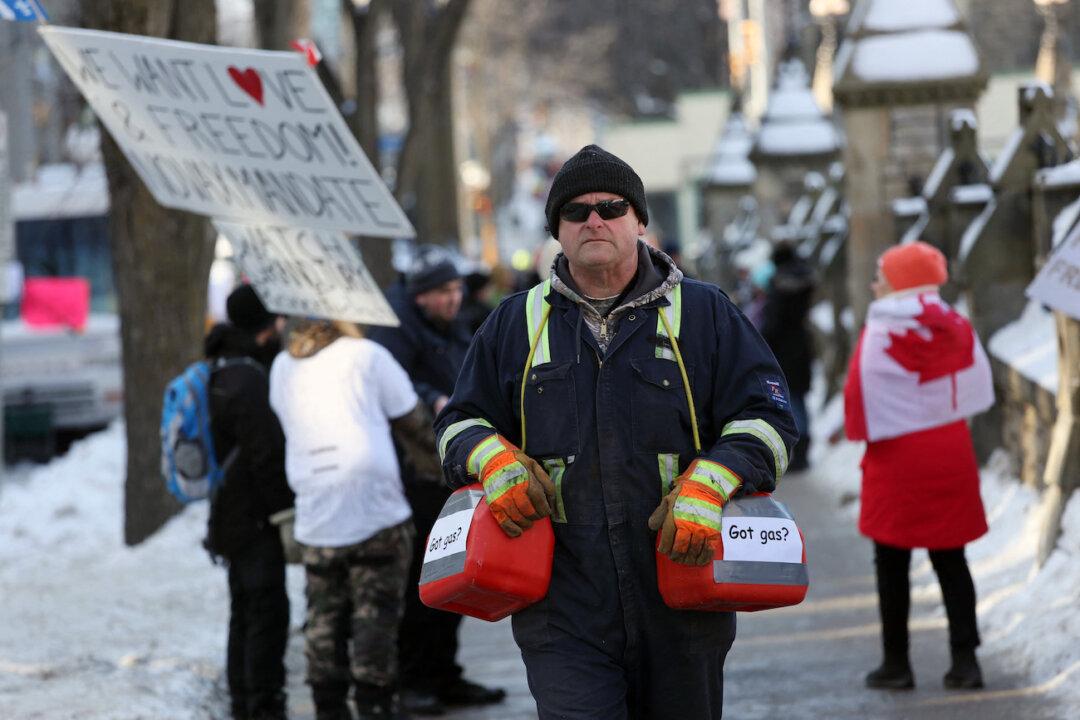OTTAWA—It was a cold day on Feb. 11 and the move was probably slightly provocative.
OK, it was very provocative at a protest site against COVID-19 mandates and restrictions, to have a sign saying “Go home terrorists.”

OTTAWA—It was a cold day on Feb. 11 and the move was probably slightly provocative.
OK, it was very provocative at a protest site against COVID-19 mandates and restrictions, to have a sign saying “Go home terrorists.”